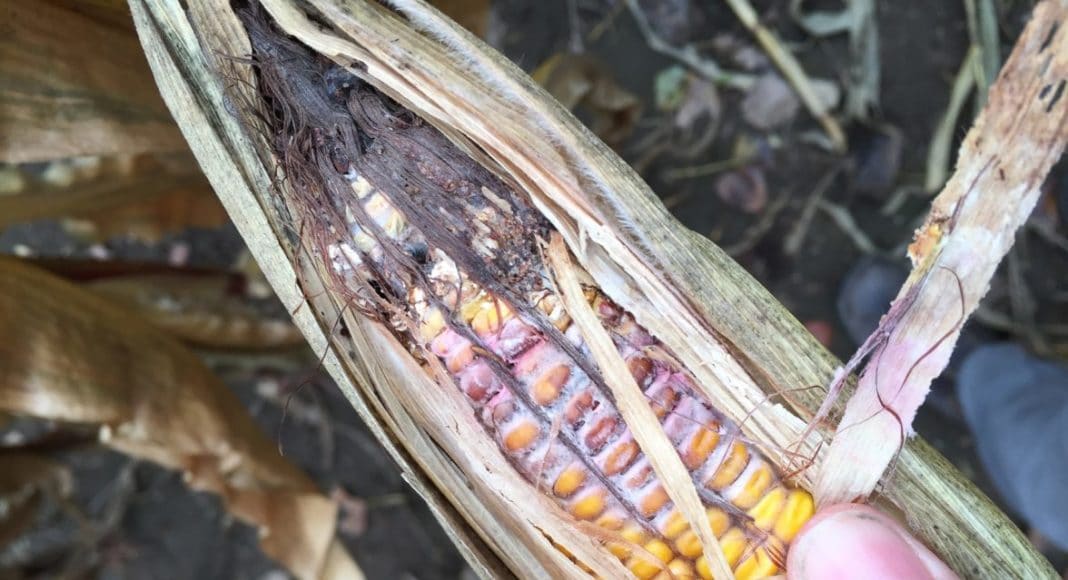This year, the incidence of corn ear rot caused by Gibberella zeae, a.k.a Fusarium graminearum, is high in some Ontario fields.
A question that has been raised recently related to corn ear rot is, “Does Fusarium graminearum infect potatoes?” The answer is YES.
A survey conducted by Gary Secor from North Dakota State University in the north central United States showed the predominant causes of potato dry rot in that region were Fusarium graminearum and Fusarium sambucinum. F. graminearum is the asexual stage of Gibberella zeae.
Corn is frequently used in crop rotation with potatoes. F. graminearum can overwinter in crop debris or in the soil. Thus, corn infected with ear rot increases the inoculum of F. graminearum in soil.
I recently spoke with Gary Secor. He said he found an interesting characteristic of this fungus: it requires larger wounds to penetrate tubers than other Fusarium species. Skin abrasions and bruising were not enough for infection by Fusarium graminearum but were enough for the other Fusarium species that cause dry rot.
Gary concluded that larger wounds are necessary for Fusarium graminearum to infect tubers. The cut surface of seed pieces will provide an easy entry for F. graminearum. Thus, a seed-piece treatment effective against Fusarium is a must in fields that had corn ear infection in 2018 and will be planted with potatoes in 2019.
Gary tested thiophanate-methyl, the active ingredient in Senator, and found that this seed-piece treatment was effective against F. graminearum. This does not mean that F. graminearum is resistant to other seed treatments available.











